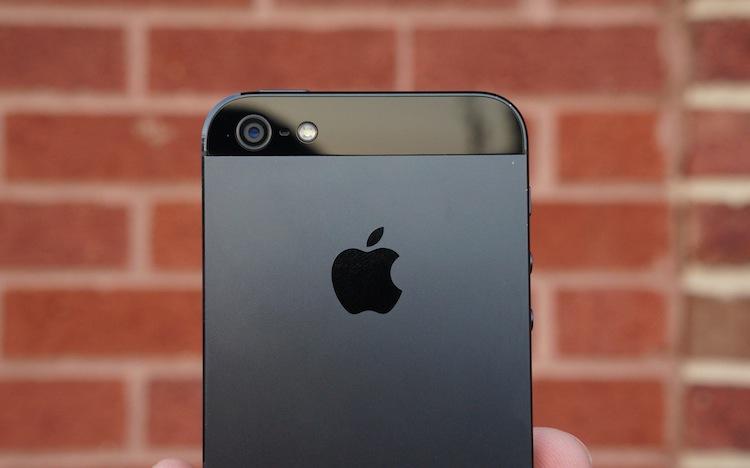
If you look at the past six years, Apple has been at the forefront of most everything that has happened in the mobile world. Competing with Google, Apple has helped redefine the mobile industry, introducing the ever-popular iPhone and iPad. Every iteration of its smartphone has remained among the most popular and profitable smartphones during each of their times, and the iPad is still the holder of the largest piece of the tablet market share.
Judging by the performance of the iPhone 5, it's be easy to assess that Apple is doing quite well. By market value, Apple is the world's largest company. And despite blowback from the removal of Google Maps in favor of its own, in-house Maps app, Apple's stock price hit an all-time high of $705.07 per share on September 21, the very day it released the iPhone 5.
But it's not 73° and sunny over the firm's headquarters in Cupertino, California like the stock iOS Weather app would have us believe. Some forecasters are calling for clouds, maybe some showers. One former Apple (also a former Google) employee, Dan Crow, predicts a rocky future for the tech company. Crow explains in a column on The Guardian that we have "passed peak Apple" and "it's all downhill from here."
Earlier this afternoon, Businessweek reported that Apple's stock prices have plummeted 20 percent from the high in September, closing today at just $558.00 per share. This drastic drop is likely due to Apple having trouble meeting iPhone 5 demand. No less, the company is now entering what is known as a bear market.
Stock prices and short supply aren't the only immediate hurdles Apple is currently facing, however. On Monday, TechCrunch reported, according to Mary Meeker, that Android smartphone adoption is "ramping up six times faster" than iPhone adoption. And on the same day, IDC revealed that Apple's prominence in the tablet sector may be lightening up. Down from 59.7 percent tablet market share in Q3 2011, Apple now holds just 50.4 percent of the total tablet market share. This can be explained both by competition heating up – in the form of affordable, high quality Android tablets and the introduction of Windows RT tablets – and slowing sales in anticipation of the iPad mini.
Enough of the two-sided numbers story, though. Crow explains something we all have anticipated. Apple is changing under control of Tim Cook, and the "Maps debacle" is just one tell-tale, says Crow. He goes on:
"Replacing Google Maps with an obviously inferior experience shows how much Apple has changed. Apple's success had been all about offering users the best possible experience; suddenly it is willing to give users a clearly worse experience to further its corporate interests - in this case its long-running dispute with Google. We might expect this sort of behaviour from Microsoft, but we don't expect it from Apple."
Crow also explicates how Jobs' "reality distortion field" we're all too familiar with was justified in its own right. "The reason he could seemingly bend reality to his will was that products like the iMac, the iPod, the iPhone and the iPad really were exceptional, breakthrough products," says Crow. However, he contrasts this with the unexciting and evolutionary announcements of the iPhone 5 and fourth-generation iPad, both of which were introduced with excessive hype from Apple.
Crow then says two things I couldn't agree with more:
"The problem with over-hyping is that people notice, and over time it erodes their faith. There are only so many times you can be told that a relatively small increment is 'the greatest thing ever in the history of everything ever' before you get jaded. Steve knew how to balance hype and product. Apple today seems much less adept at this."
"Apple has a winning formula - perhaps the most successful business formula ever - yet it seems intent on changing it. The company has shifted away from Jobs's laser-like focus on building the best and most complete user experience, and started putting its interests way ahead of those of its users. It hasn't introduced a truly new product since the launch of the iPad nearly three years ago; instead it's making incremental and overhyped improvements to its current lines."
All of what Crow says is in line with what I've been saying and thinking since the passing of Jobs. And Apple's resistance to change, the fact that iOS has hardly changed in over six years, has me wondering if and when Apple will go through the same turbulence the former mobile giant Research In Motion is currently fighting its way through.
With other platforms rapidly changing and advancing, iOS is beginning to show its age. At what point will this come back to haunt Apple?
None of this is to say Apple will fall off the charts and disappear overnight. Apple is enormous with over $120 billion in cash. It will continue to create high quality products – likely even consumer favorites – for years to come. But its spot at the top has an expiration date, just as any company's reign does. Without Jobs manning the ship, creating and designing new, innovative products, Apple will begin to lose traction and fade from the spotlight.
The question now is: how will Tim Cook handle the situation? Where will Apple go from here? Can it continue to innovate and stay relevant? Already we see Apple following versus leading – creating a larger phone and a smaller tablet.
One thing is certain. It's a rocky road ahead for Tim Cook and Co.